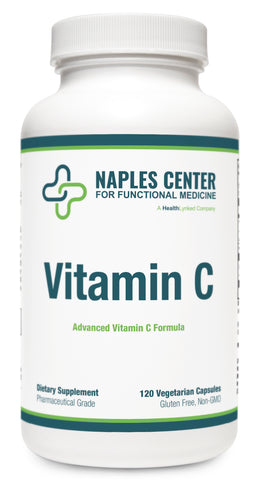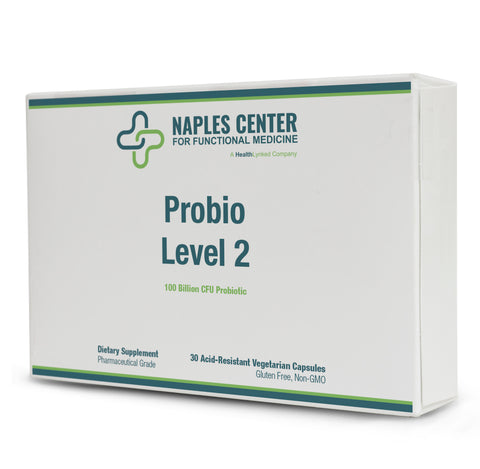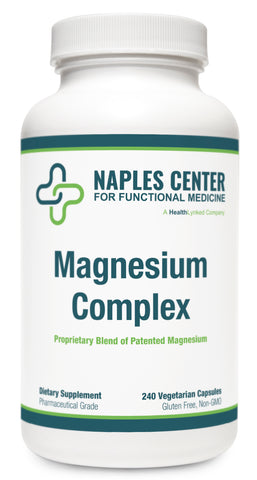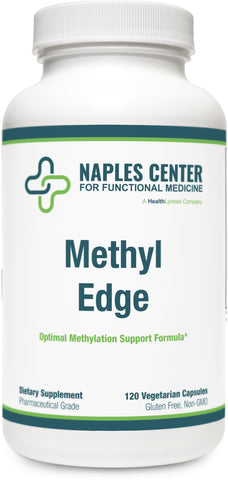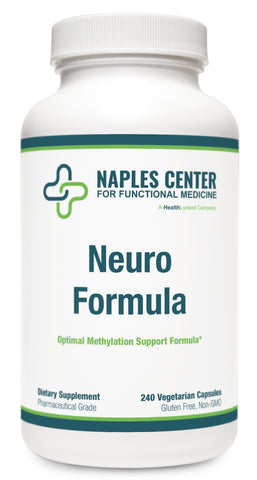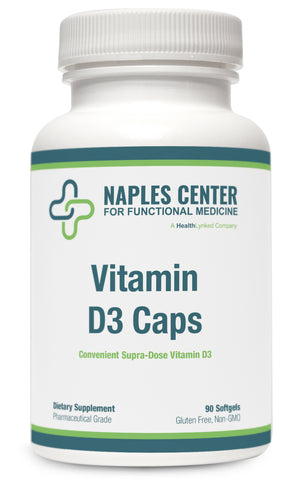Vitamin C
Vitamin C
Advanced Vitamin C Formula
Vitamin C is a high-potency vitamin C formula with the addition of 7.5 mg of BioPerine® per capsule. BioPerine, a proprietary black pepper extract, is present to promote absorption and bioavailability of vitamin C. Vitamin C provides valuable antioxidant protection and is necessary for the production of collagen, an integral component of blood vessels, tendons, ligaments, and bone. This essential water-soluble vitamin is required for the synthesis of neurotransmitters and carnitine as well. Vitamin C contains buffering minerals to help prevent potential stomach upset.*
Disclaimer
Directions
Take two capsules twice daily, or as directed by your healthcare practitioner.
Consult your healthcare practitioner prior to use. Individuals taking medication should discuss potential interactions with their healthcare practitioner. Do not use if tamper seal is damaged.
Does Not Contain
Wheat, gluten, yeast, soy, animal or dairy products, fish, shellfish, peanuts, tree nuts, egg, ingredients derived from genetically modified organisms (GMOs), artificial colors, artificial sweeteners, or artificial preservatives.
Storage
Keep closed in a cool, dry place out of reach of children.
Other Ingredients
HPMC (capsule), stearic acid, medium-chain triglyceride oil, magnesium stearate, and silica.
Applications
- High-Potency Vitamin C Formula Provides 750 mg Vitamin C per Capsule
- Formulated with BioPerine® to Enhance Nutrient Bioavailability*
- Supports Immune and Antioxidant Systems*
- Supports Production of Collagen, Carnitine, and Neurotransmitters*
- Buffered with Minerals to Help Prevent Potential Stomach Upset*
Disclaimer
Discussion
Vitamin C (ascorbic acid) is a water-soluble vitamin that is essential to humans and must be obtained exogenously. While most mammals are able to synthesize vitamin C, humans are unable to. This is because humans lack one of the enzymes required to synthesize vitamin C from glucose. Stress, smoking, pollution, radiation and heavy metal exposure, immune challenge, and temperature change all increase the human requirement for vitamin C. Well-known functions of this versatile vitamin include antioxidant protection from free radicals and oxidative processes; synthesis of collagen, carnitine, and neurotransmitters; and immune stimulation and support.[1-3] Vitamin C functions as a cofactor for several metabolic enzymes and is involved in protein metabolism. It also plays a lesser-known role in the deactivation of histamine.*[4,5]
Collagen is a fundamental component of bone, tendons, ligaments, and blood vessels. Vitamin C’s role in collagen formation makes it vital to maintaining skin, capillary, gum, joint, and skeletal health.[1,3,6] Vitamin C’s role in promoting and maintaining collagen, and consequently skin integrity, was recognized as early as the 1930s in published surgical journals.*[7]
Synthesis of carnitine depends on vitamin C, highlighting vitamin C’s role in energy production. Carnitine is the “car” that shuttles fatty acids into the mitochondria where they can be converted to the energy-yielding molecule adenosine triphosphate (ATP). Synthesis of certain hormones and neurotransmitters depends on vitamin C as well. It is required for the conversion of dopamine to norepinephrine—a neurotransmitter that is of great importance in maintaining healthy mood and brain function.*[3]
Protecting tissues and organs from oxidative damage is believed to be pivotal in maintaining health in the body.[8,9] Ascorbate, the reduced form of vitamin C (the form found in Vitamin C), is a generous donor of electrons, allowing it to counteract oxidative free radicals. This property makes ascorbate an ideal antioxidant that can protect cells and tissues as well as regenerate other antioxidants. In turn, various nutrients and compounds, such as glutathione and alpha-lipoic acid, are able to regenerate vitamin C and extend its antioxidant protection. Recognizing the importance of vitamin C as a protective antioxidant, the Institute of Medicine, an independent and non-profit organization that provides advice on health and science to decision makers and the public, recommended increasing vitamin C requirements for smokers due to their exposure to toxins and oxidative elements in cigarette smoke.[1] Additionally, vitamin C is able to limit the formation of carcinogens, such as nitrosamines.*[1]
Vitamin C supplementation has been studied for more than six decades with respect to moderating the severity or duration of acute immune challenges.[1,3,10] Benefits are most notable in cases of extreme physical stress.[2] Within three meta-analyses, in a subgroup of six studies, vitamin C reduced signs of acute immune challenge by an average of 50% in marathon runners, skiers, and soldiers that had been physically stressed or exposed to cold temperatures.*[11]
Adequate intake and retention is necessary to maintain vitamin C status in the body. Total stores can range from 300 mg (considered too low to maintain health) to 2000 mg. The highest concentrations can be found in leukocytes, eyes, adrenal and pituitary glands, and the brain.[1] Relatively low levels are maintained in plasma, so plasma vitamin C measurement may not be useful in the assessment of vitamin C status. According to pharmacokinetic studies, an oral dose of 1.25 g vitamin C per day will produce mean peak plasma concentrations of 135 micromol/L (approximately twice the level reached by consuming 200-300 mg/d of ascorbic acid from foods rich in vitamin C).[1] The Linus Pauling Institute at Oregon State University recommends a base dose of 250 mg vitamin C twice a day.[3] For optimal health, Dr. Pauling recommends 2.3 g or more per 2500 kcals.[12] Individual tolerance should be determined, as some ascorbic acid is metabolized to oxalic acid and excreted in the urine. Bowel tolerance to higher doses of vitamin C may vary from individual to individual as well.*
We Also Recommend

